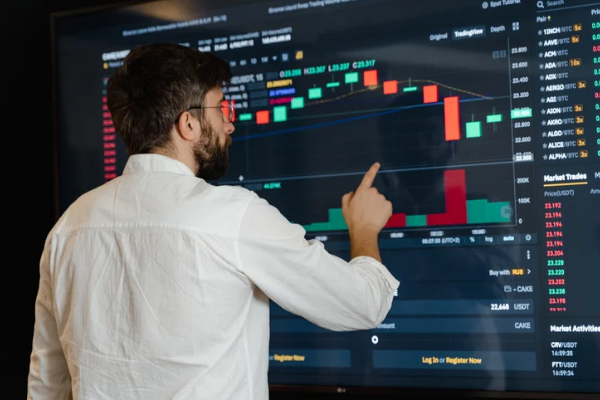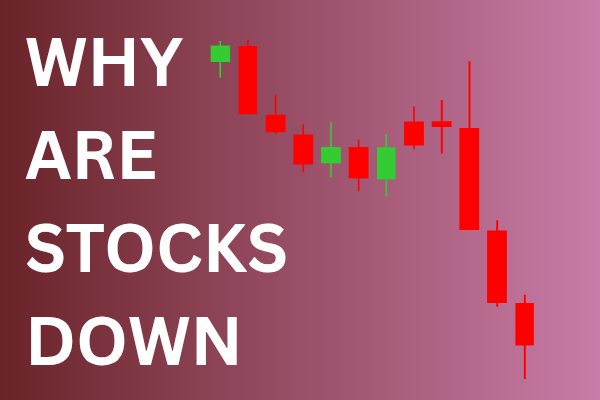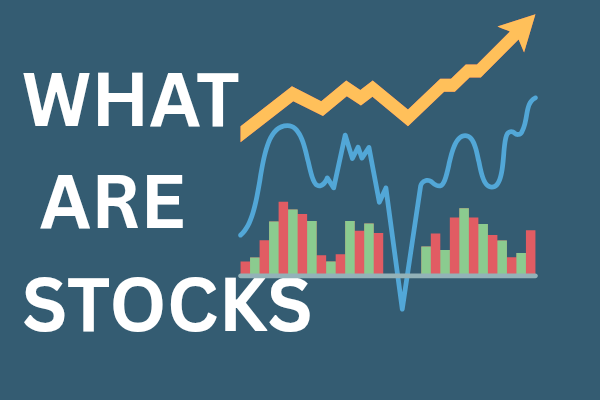A market where shares are publicly issued and traded is known as a stock market. The key difference between the ‘stock market’ and the share market is that only shares are allowed to be traded in the share market. Whereas, the ‘stock market’ allows trading in derivatives, bonds, mutual funds, as well as shares of listed companies. When companies need funds, they put their shares in the stock market, after which those shares can be traded. Only those shares can be bought and sold in the stock exchange which are listed on it. The major stock exchanges of India are the National Stock Exchange and the Bombay Stock Exchange.
If you start investing at a young age and stay invested for a long time, the rate of return will be high. You can plan your investment strategy based on the time you need the money. By buying shares, you are investing money in the company. Then as that company grows, the price of your shares will also increase. You can make a profit by selling it in the stock market. There are many factors that affect the price of a share. Sometimes the price can rise and sometimes it can fall. Long term investment can make you good wealth provided you have invested in the right stock. Now the question arises that why does a company sell its shares to the public? A company needs capital or money for its expansion, growth etc. and for this reason it raises funds from the public. The process by which a company issues shares is called an Initial Public Offer (IPO). We will read about IPO in detail under Primary Market. You must have always heard people talk about bull market and bear market. What are they? A bull market is where the stock prices keep rising and a bear market is where the prices keep falling. Where does all this buying and selling take place? NSE (National Stock Exchange) and BSE (Bombay Stock Exchange). These are the two major stock exchanges in India and are regulated by SEBI (Securities and Exchange Board of India). Brokers act as intermediaries between the stock exchange and investors. So to start investing or trading, you need to open a demat account and trading account with a broker. You can easily open your account online through a simple process. After linking your bank account to these accounts, you can start your investment journey.
Rule of stock Market
Just like every institution has its own rules and regulations, similarly before investing in the stock market it is important that you are fully aware of the rules of the market.
Here some rules of the stock market are mentioned so that you can get the right information about the market from the beginning and decide to invest in it.
1. choose the right stockbroker, look at their existing client and complaint data
2. Open a demat or trading account with the stockbroker
3. Keep your trading platform secure with the right password
4. Initially enter the market with a long term investment plan
5. Determine the time to trade and invest
Types of Stock Market
There are two types of stock markets in India, primary market and secondary market.
1. Primary market
A primary stock market is a place where a company first registers with the goal of raising funds and issues a certain amount of shares. The goal of being publicly listed on a primary stock exchange is to raise funds.
This is where a company registers to issue a certain amount of shares and raise funds. If the company decides to sell its shares for the first time, it is known as an initial public offering.
The primary market is a part of the stock market where a company raises money by issuing shares in the primary market through the process of an IPO.
When a company decides to go public for the first time through an initial public offering (IPO), it is done in the primary market. Since shares are sold here for the first time, the primary market is also known as the New Issue Market (NIM).
During an IPO, the company sells its shares directly to investors in the primary market. Through an IPO, investors get a chance to buy new stock.
Once shares are sold in the primary market, they are bought and sold by traders and investors in the secondary market.
2. Secondary market
Once the new shares of a company are sold in the primary market, they are traded in the secondary share market. In the secondary market, investors get the opportunity to exit their investment and sell their shares.
Transactions on the secondary market mostly involve trades where an investor chooses to buy or sell shares from a different investor at the current market price.
At whatever price both the parties agree to set or based on the current market price, one investor will buy or sell shares from another in the secondary market. Usually investors or traders carry out these transactions through a broker who facilitates this process.
The broker provides you with a platform where traders and investors carry out their trading activity.
There are also different types of shares such as:
Equity shares, dividend shares, preference shares, blue chip shares etc. These are briefly mentioned below.
The stock market can be traded only during a specific time interval in India. The stock market in India is open from Monday to Friday from 9.15 AM to 3.30 PM. The market remains closed when there is a public holiday. Most investors and traders buy/sell shares of companies listed on the major stock exchanges in India – Bombay Stock Exchange (BSE) and National Stock Exchange (NSE). The Indian stock market timings are the same for both these major stock exchanges.
The Indian stock market timings are divided into three parts for trading –
1 Pre-opening session
The pre-opening session starts at 09:00 AM and runs till 09:15 AM. It is further divided into three sections. During any of these sections, you can place orders to buy or sell shares for a limited period. Let us look at the details of the pre-opening session below.
Section 1: 09:00 AM to 09:08 AM
During these 8 minutes, you can place orders to buy or sell individual stocks in the stock market. Moreover, you can also modify or cancel any orders you have placed. When the normal trading session begins at 09:15 AM, the orders from the pre-opening session take precedence.
Section 2: 09:08 AM to 09:12 AM
During these 4 minutes, you cannot place any new orders, modify existing orders or cancel any orders.
Section 3: 09:12 AM to 09:15 AM
This 3-minute time is like a connection section between the pre-opening session and the normal session. It behaves like a buffer to ease trading in the regular trading section. Again, even during these 3 minutes, you cannot place, modify, or cancel any orders.
2 Normal Session
This is also known as the continuous trading session, and it runs from 09:15 AM to 03:30 PM. During this session, you can freely trade, place orders to buy or sell stocks, and modify or cancel your buy or sell orders without any limits.
3 Post-Closing Session
This session begins when the regular trading session ends at 03:30 PM. The post-closing session, which runs until 04:00 PM, has two segments.
Segment 1: 03:30 PM to 03:40 PM
In these 10 minutes, the closing prices of the stock are calculated by taking the weighted average of the prices of the stock traded between 03:00 PM and 03:30 PM. The closing prices of indexes like Sensex and Nifty are calculated by considering the weighted average prices of all the stocks listed in that index.
Segment 2: 03:40 PM to 04:00 PM
In this segment of 20 minutes, you can still place buy and sell orders. But the order is confirmed only when there are sufficient number of buyers and sellers in the market.









